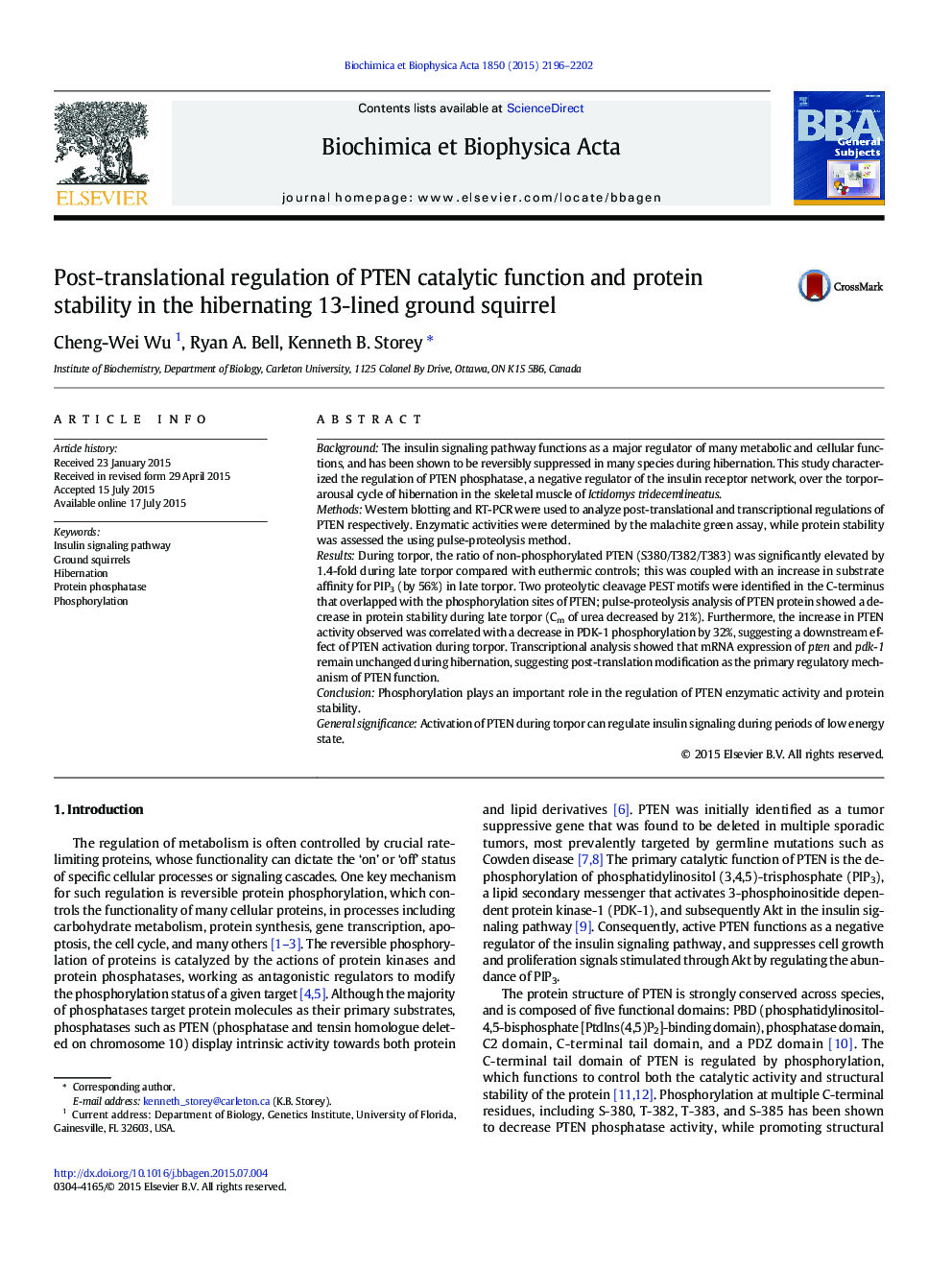| Article ID | Journal | Published Year | Pages | File Type |
|---|---|---|---|---|
| 1947390 | Biochimica et Biophysica Acta (BBA) - General Subjects | 2015 | 7 Pages |
•Non-phosphorylated PTEN protein is elevated during torpor.•Catalytic activity of PTEN is elevated during torpor, with reduced protein stability.•PTEN phosphorylation site overlaps with PEST motifs that regulate protein stability.•PTEN activation during torpor is associated with decreased PDK-1 phosphorylation.
BackgroundThe insulin signaling pathway functions as a major regulator of many metabolic and cellular functions, and has been shown to be reversibly suppressed in many species during hibernation. This study characterized the regulation of PTEN phosphatase, a negative regulator of the insulin receptor network, over the torpor–arousal cycle of hibernation in the skeletal muscle of Ictidomys tridecemlineatus.MethodsWestern blotting and RT-PCR were used to analyze post-translational and transcriptional regulations of PTEN respectively. Enzymatic activities were determined by the malachite green assay, while protein stability was assessed the using pulse-proteolysis method.ResultsDuring torpor, the ratio of non-phosphorylated PTEN (S380/T382/T383) was significantly elevated by 1.4-fold during late torpor compared with euthermic controls; this was coupled with an increase in substrate affinity for PIP3 (by 56%) in late torpor. Two proteolytic cleavage PEST motifs were identified in the C-terminus that overlapped with the phosphorylation sites of PTEN; pulse-proteolysis analysis of PTEN protein showed a decrease in protein stability during late torpor (Cm of urea decreased by 21%). Furthermore, the increase in PTEN activity observed was correlated with a decrease in PDK-1 phosphorylation by 32%, suggesting a downstream effect of PTEN activation during torpor. Transcriptional analysis showed that mRNA expression of pten and pdk-1 remain unchanged during hibernation, suggesting post-translation modification as the primary regulatory mechanism of PTEN function.ConclusionPhosphorylation plays an important role in the regulation of PTEN enzymatic activity and protein stability.General significanceActivation of PTEN during torpor can regulate insulin signaling during periods of low energy state.
